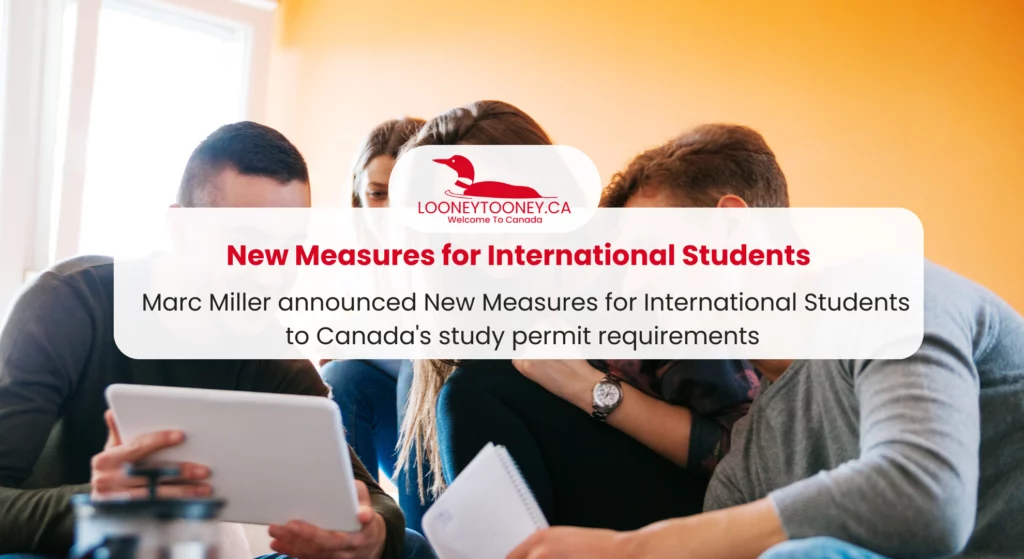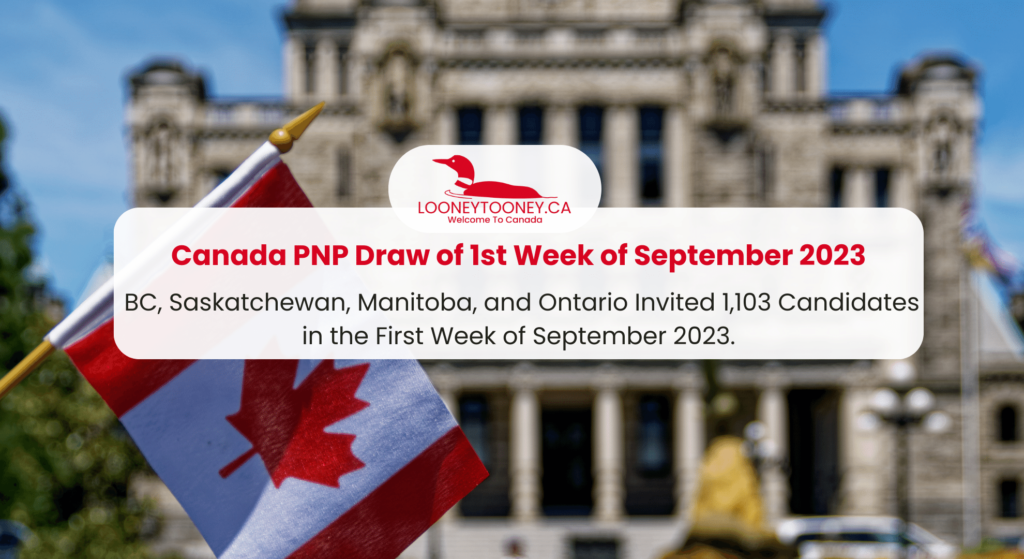In a significant development, the Immigration Minister of Canada, Marc Miller, recently unveiled a series of updates to reshape education for international students. The new measures for international students will take effect from January 1, 2024. It will encompass a range of key areas, including financial requirements, limits on international student numbers, work policies, and adjustments to distance learning measures. These changes underscore the Canadian government’s commitment to enhancing the overall experience for international students and ensuring the sustainability of its education system.
Table of Contents
New Measures for International Students
Here are the new measures for international students in detail.
1. Doubling Financial Requirements
One of the notable alterations involves a doubling of the financial criteria for study permit applicants. The prospective international student has to demonstrate financial readiness by showcasing $20,635 or 75% of the low-income cut-off (LICO). This is in addition to tuition and travel expenses from January 1, 2024. The objective is to better prepare students financially for their educational journey in Canada.
2. Probable Cap on International Students
In an effort to ensure that educational institutions can adequately support the influx of international students, the government is contemplating measures to cap the number of students admitted. Collaborative initiatives with governments and education stakeholders are anticipated to be in place by the fall of 2024, with the aim of setting realistic limits on visas and ensuring institutions provide sufficient support, including housing.
3. Full-Time Work Policy Extension
International students will continue to benefit from an exemption to the 20-hour-per-week limit on off-campus work until April 30, 2024. Furthermore, the government is exploring options for future policies, including the possibility of allowing international students to engage in off-campus work for up to 30 hours per week during class sessions. These adjustments recognize the importance of work opportunities for international students while contributing to their overall experience in Canada.
4. Distance Learning Measures
The time spent studying online (up to 50% of the program) will be counted towards the post-graduation work permit. However, for those starting programs on or after September 1, 2024, this measure will no longer apply. This adjustment reflects the evolving nature of educational delivery methods and aligns with the government’s focus on maintaining the quality of in-person educational experiences.
5. No PGWP Extension in 2024
The temporary policy that offered an 18-month extension to post-graduation work permit holders, implemented in response to pandemic-related labor market challenges, will not be extended beyond December 31, 2023. There will be no Post-Graduation Work Permit (PGWP) extension policy in 2024. This decision signals a return to standard policy parameters, emphasizing the government’s confidence in the resilience of the labor market.
In summary, these updates reflect a multifaceted approach by the Canadian government to address financial preparedness, support for international students, and policy adjustments related to work and distance learning. As Canada continues to attract a diverse pool of global talent, these measures are poised to enhance the overall international student experience and contribute to the country’s reputation as a premier destination for education.
New Measures for International Students in Canada- FAQs
1. What are the new financial requirements for study permit applicants in Canada, effective January 1, 2024?
A. Starting January 1, 2024, study permit applicants will be required to demonstrate financial readiness by showing $20,635 or 75% of the low-income cut-off (LICO), in addition to covering tuition and travel expenses.
2. How will the government address the potential influx of international students in Canada, and what measures are being considered?
A. To ensure that educational institutions can adequately support international students, the government is contemplating measures to cap the number of students admitted. Collaborations with governments and education stakeholders are planned to establish realistic limits on visas and ensure institutions provide sufficient support, including housing.
3. Is there an extension to the exemption from the 20-hour-per-week limit on off-campus work for international students, and until when will it be applicable?
A. Yes, the exemption from the 20-hour-per-week limit on off-campus work for international students will be extended until April 30, 2024.
4. How do the distance learning measures impact post-graduation work permits for international students in Canada?
A. For students starting programs before September 1, 2024, time spent studying online (up to 50% of the program) will continue to count towards the post-graduation work permit. However, this measure will no longer apply to students beginning programs on or after that date.
5. Will there be an extension to the Post-Graduation Work Permit (PGWP) beyond December 31, 2023?
A. No, the temporary policy offering an 18-month extension to post-graduation work permit holders, implemented in response to pandemic-related labor market challenges, will not be extended beyond December 31, 2023. There will be no Post-Graduation Work Permit (PGWP) extension policy in 2024.





